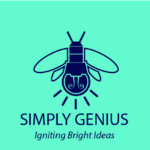
“We cannot solve our problems with the same level of thinking that created them.”
~ Albert Einstein
There is an artificial intelligence computer system that goes by the name Watson, developed by IBM (from 2004-2011). Watson is incredibly adept at extrapolating information with such amazing accuracy and lightning-fast speeds that it seemed an obvious gateway to artificial intelligence.

Its ability to predict, analyze, and formulate the correct answers at (Linpack Benchmark) supercomputing speeds makes Watson a formidable intelligence, as well as a highly useful tool to help solve riddles and mysteries of the universe.
While Watson isn’t disruptive, the idea and inception of Watson certainly are. The thread that led to its conception, albeit a byproduct of the early thinkings of Ada Lovelace, is nonetheless intriguing.
According to David Ferrucci, a computer scientist who served as the principal investigator of a team of IBM and academic researchers and engineers between 2007 and 2011 to the development of the Watson computer system, he explained that Watson was engineered to identify word patterns and predict correct answers for the trivia game Jeopardy. It was not an all-purpose answer box ready to take on the commercial world, he said. But it was a damn good start.
Watson did, however, ignite the idea of possibility of what AI could one day become. It wasn’t necessarily Watson’s capabilities, but the idea of what computers could do in the near future. This Ada Lovelace prediction opened the gateway to what AI might become. We never guessed it might be sooner than later.
Now we have the inception of Chatbot intelligence and the creation of advanced OpenAI like ChatGPT and GPT-4.
At first, while exploring the opportunities of AI, we will use it to delve into its ‘fun’ nature and capabilities because we are in the experimental, learning stages. We’ll begin by challenging this technology with questions about the world and the unknown universe, food recipes, research for college studies, and a recent favorite, writing a book like a professional author.
Popular requests currently include song and poem writing, creating marketing copy, developing computer code, and the ever-popular helping with homework.
Later, as we begin to see future applications and far-reaching potential, we’ll get more serious and dig deeper into its level of capabilities like solving real-world problems, such as hunger, hatred, war, climate change, healthcare and human longevity.
And, as many of these technological and automated advancements in engineering and computing continue to develop more rapidly, we’ll also have concerns about AI replacing humans in the workforce. (Check out Martin Ford’s Rise of the Robots)
“There is nothing more deceptive than an obvious fact.” ~ Sherlock Holmes
Yet with all of Watson’s technological advancements, and cognitive computing capabilities, and now with OpenAI’s recent lightning-fast advancements in predictive and reasoning skills and competencies, they still have not been able to accurately replicate human intuition, nor figure out a way to replace the unique mindset of the Disruptor.
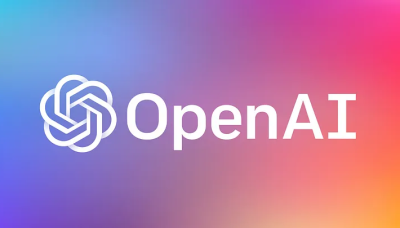
Artificial intellegence can theorize and summarize at lightning speeds, it can learn and adapt instantly, it can analyze with pinpoint accuracy, it can even write its own jokes (so did Siri, initially: “Siri, can you stop time?” Answer: “I’ll tell you yesterday.”), but AI cannot go on a wild, philosophical tangent that doesn’t lead to a predictable outcome.
The primary distinction that will always separate humans from computers, or AI, is the unique gift of our natural intuitive abilities without reason or logic.
The most a supercomputer can hope to achieve is what approximates the illusion of intuitive creativity yet is merely a result of lightning-fast analyzing and logical theorizing by extrapolating data based upon specific directives and algorithms, giving AI technology and fellow supercomputers their incredible abilities.
“There are more things in Heaven and Earth, Horatio, than are dreamt of in your philosophy.”
~ Hamlet, William Shakespeare
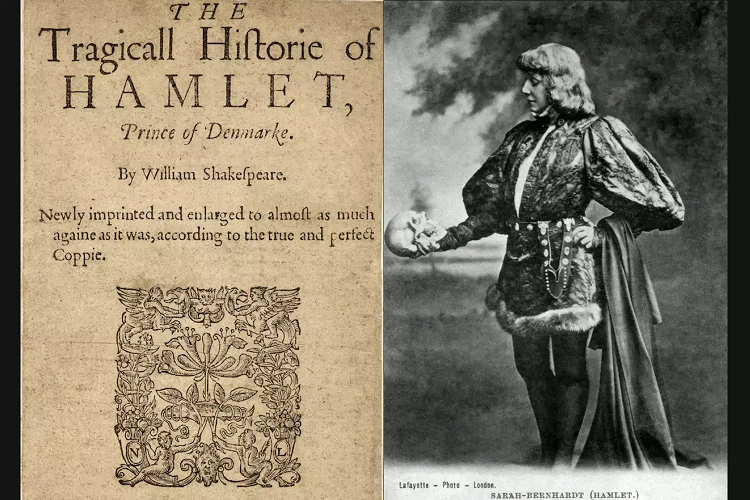
But computers don’t ponder. They can’t. They don’t philosophize nor do they doubt their own thinking. They weren’t designed to. A computer doesn’t daydream, experiment, or fantasize. It doesn’t experience emotional highs and lows, or feelings, and no matter how much we want them to appear more human, its findings will always be based upon empirical conclusions and absolute data.
On the other hand, the human condition of intuition, which can sometimes be related to walking into a dark cave hoping to discover diamonds or gold, initially offers nothing more than a feeling, a hunch, or a burning desire to figure something out. Yet this is where true Disruption begins, on the playground of imaginative thinking.
Without the ability to imagine, Artificial intelligence will never be able to successfully disrupt.
Disruptors seem to live in a different world, one of pure imagination. The bigger they dream, the wilder the ideas, the bolder the fantasy of ingenuity, the more likely they are to create new pathways of opportunity and advancement.
Intuition is the key to unleashing one’s disruptive ability to think without filters or limitations while using observation and personal experience to arrive at a decision. This is the real source of superpower for the Disruptor. It’s the gateway to quick insight without evident rational thought. It’s the act of contemplating without the hindrance of logical thinking.
Disruptors are naturally intuitive thinkers. Their ideas seem to come out of nowhere, wildly extreme, and sometimes peculiar in their connection. Intuitive thinking, therefore, is alchemic. The reason disruption can occur in so many different fields is that the combination of disruptive ingredients can be so varied, not systematic. Disruption can be part creative, part fantasy, part divergent, explorative, experimental, playful, adventurous, and powerfully imaginative.
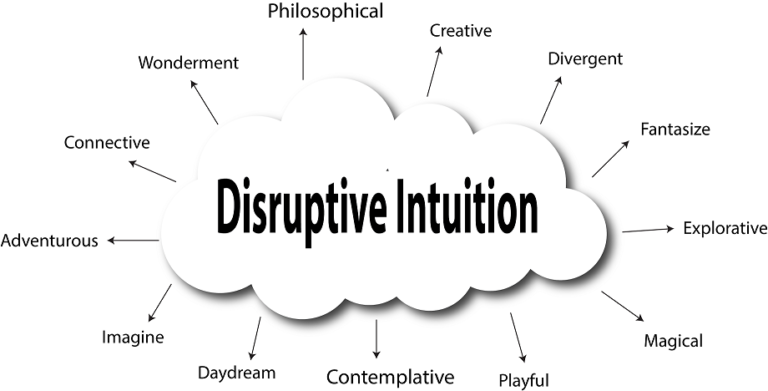
The point is that great achievement has no roadmap. Many of these accomplishments were discovered with no practical objective in mind, such as penicillin and the x-ray. And initially, when the electron was discovered in 1897 it was useless. Now, we have an entire world that is run by electronics. Mozart and Hayden never studied the classics; they invented them. Discovery is the thing that moves us forward, and sometimes it’s by accident, and sometimes by a unique, random, or whimsical thought or idea.
(Source: The West Wing)
Connecting unlikely things, experimenting, imagining, fantasizing, playing, and daydreaming is what’s behind genius creativity, not some algorithm. And like rational thought, AI should not lead, but instead, be used to collect, extrapolate, calculate, analyze, validate, verify, and support our findings, and make it simpler and faster to do so.
Many of our greatest scientists, mathematicians, and explorers used their intuitive minds to discover, create, and build. It took many years before their findings could be vetted, verified, and proven sound.
Your Disruptor is that extraordinary person inside you who creates magnificent sunsets, who makes the oceans roar, who explores the most amazing rain forests, who starts with a blank canvas and reimagines the world. What you do with your Disruptor is entirely up to you. Knowing that you have no limitations, except those that are self-imposed, is so freeing because you have the opportunity to set the standards for your life and direction. You dictate the outcome, and no one and nothing else gets to tell you otherwise.
At this moment, there are no limitations. If you think about it and you’re someone who believes in God, then you know that God didn’t create you to fail. Even if you don’t believe in a god, you still weren’t created to fail.
Intuitive thinking tells us that, internally, something about conventional wisdom, or rational thinking, just doesn’t feel right (i.e., the world is flat).
We’re all born with this innate, intuitive ability, but because of societal pressures and societal standards, we’ve stopped practicing and trusting in cultivating our intuitive abilities.
In India, the powerful practice of meditation is used to enhance and develop the deeper, intuitive mind to better connect with the universe through mindfulness, vibrational energy, and connection.
“Coming back to America was, for me, much more of a cultural shock than
going to India. The people in the Indian countryside don’t use their intellect
like we do, they use their intuition instead, and their intuition is far more
developed than in the rest of the world. Intuition is a very powerful thing,
more powerful than intellect, in my opinion. That’s had a big impact on my work.”
~ Steve Jobs
In his book Blink, Malcolm Gladwell explores the intuitive mind with questions like, “How can an art expert differentiate between a fake and an original piece of art within seconds?” “How can a marriage analyst know within minutes whether the couple will stay together or not?”
In 2014, Navy research spent $3.85 million to explore premonition and intuition. The Pentagon’s focus was to maximize the power of the sixth sense for operational use. In 2006, Commander Joseph Cohn, a program manager at the naval office, told the New York Times that in a field in Iraq, intuition was used to alert them to an impending IED attack.
Techniques to Reshape Your Intuition – Cultivating a Stronger Intuitive Mind
Intuitive thinking is the most important thinking style you can develop if you want to fully access your inner-Disruptor.
You need to turn off all the mind clutter. What this means is that most of the noise inside your head is the voice of your Limiting Belief System, which is the noise of outside influences.
If you’re more of a “left-brained” thinker, don’t worry, and please don’t assume that the intuitive process isn’t available for you. The power of intuition can be developed and improved in everyone. The key is to follow the methods below. As you begin to tap into your intuitive mind, you’ll grow more comfortable with how powerful it is. In no time, it will become your favorite go-to thinking style to develop faster, more sound answers.
If you’ve ever thought I should have listened to my first instinct, then what you’re really telling yourself is that you don’t trust your own intuitive nature.
Many of us have a constant internal conflict between what we intuitively know and what we were taught to do on a rational level. Because these two styles of thinking are often in conflict, whenever you lean toward a natural decision, you hesitate. Fear and doubt take over.
The key is that when you eliminate any Limiting Belief System, you begin to build a strong trust within your natural intuitive self, one that’s unwavering and reliable.
Once you’re regularly tapping into that natural, intuitive mental power, fear, doubt, feeling overwhelmed, and any anxieties you have about making decisions diminish, and no longer get in the way. Your thought process becomes easy, natural, and faster.
In order to successfully do this, practice the following techniques:
When you were a child you relied on your intuitive mind. You ’felt’ whether something was right or wrong, whether it felt natural or forced, whether it was true or false. You naturally deferred to your creative, imaginative, and fantasy-like ability to daydream and pretend. This was a very powerful gift we are all given that was slowly weeded out of us in order to ‘fit in’ to societal standards of behavior and practice.
During the process of development, influencers in the role of teachers, mentors, and guides conditioned us to think rationally and forego the silly whims of divergent, imaginative, playful, or fantasy thinking. These were to be used sparingly when they did not interfere with societal standards of rational thought.
The good news is that this constant conditioning did not erase your natural intuitive mindset, it just stifled it. And with practice, it is easy to rekindle until it once again becomes strong and dominant.
“Logic will get you from A to B. Imagination will take you everywhere.”
~ Albert Einstein
Don’t Follow the Pack
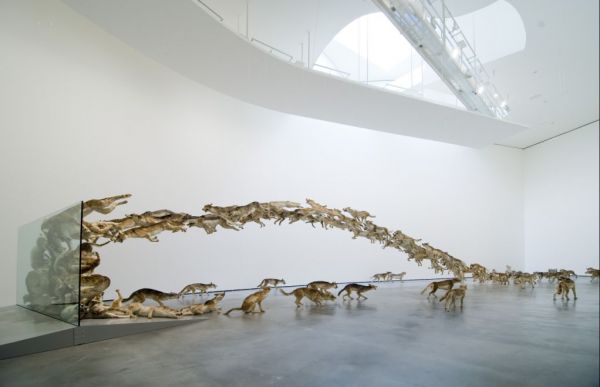
You can rapidly enhance your intuitive mind by:
- Encouraging a more open, playful attitude with everything you encounter.
- Listening with intent to your inner voice.
- Imagining bigger than you may be comfortable with.
- Not being limited or hindered by logic or reasoning.
- Practice reacting to your first thought.
- Being willing and open to fantasize, even if it doesn’t always make sense.
- Learning to incorporate ‘pretend’ back into your life.
- Taking a deep inventory of which senses you’re least accessing and learning to cultivate them.
- Approaching everything by challenging your current beliefs and becoming more inquisitive: Why is that so? How does that work? What makes it do that? Why do I believe that is so?
- Not attempting to draw immediate conclusions and instead, being open to see where they lead. Letting your mind ponder and ruminate, and explore silly, unconventional thoughts and ideas.
Developing your intuitive mind is not hard. But it does take patience and practice. Allow yourself the guilt-free freedom to imagine, play, fantasize, create, and daydream. Incorporate lost words back into your thinking like philosophize, ponder, explore, investigate, and bring experimentation back into your life. Learn to bend things that don’t bend. In other words, don’t be so rigid, logical, and pragmatic about everything.
Don’t take being silly or playful for granted. And, as much as you can, don’t let your ego influence you. Ego can limit how far you are willing to push yourself and how big you are willing to play.
“Do not try and bend the spoon—that’s impossible.
Instead, only try to realize the truth.
There is no spoon.”
~ The Matrix
Now go be intuitive.